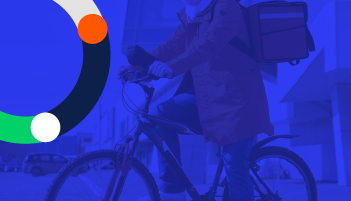
As the importance of sustainability continues to grow in prominence, it’s becoming imperative for all industries, including retail to focus on green delivery. Recent research from Hermes, reveals that over 40% of consumers admit they’re ordering more online but wish there was a more sustainable process in place. With more people buying online than ever before, retailers need to ensure they implement sustainable practices across their entire delivery ecosystem.
Increasing consumer willingness to delay for green delivery
As consumers get to grips with the climate crisis and change their habits to incorporate sustainable practices, retailers need to ensure they are offering greater choices for green deliveries. According to research from our Ecommerce Delivery Benchmark Report 2022, almost 75% of online shoppers have stated they consider measures to make deliveries more sustainable. In particular, consumers have highlighted they are more willingly to delay rather than pay for more sustainable deliveries, with 56% highlighting they are willing to sacrifice traditional delivery factors such as speed for longer delivery timeframes.
Increasing popularity of out of home delivery
Out of home deliveries have been a staple of delivery networks for years, but their increasingly popularity with consumers should not be ignored. Designed to provide consumers with flexibility and convenience, they also provide a sustainable alternative to home deliveries. Consolidated deliveries from multiple online orders to just one location can reduce emissions by cutting the number of deliveries to individual homes. Research reveals that over 1/3 of consumers would be willingly to switch to collection points as they provide a green delivery option.
Out of home lockers and PUDO (pick-up/drop off) networks will continue to rise in popularity especially as they provide consumers with a viable sustainable delivery option. Carriers are also investing heavily in PUDOs as part of their sustainability offerings, DPD recently expanded its pickup network to 6,000 locations as a result of its partnership with the Post Office. These types of collaborations are set to flourish and become increasingly popular in the years’ ahead.
Green delivery options: the year of electric fleets
With an increasing number of electric delivery fleets being introduced to the market by carriers around the world, consumer expectations on green delivery at the checkout have also changed. 32% of consumers say sustainability is the most important factor when selecting delivery options – greener options are no longer a nice to have but a ‘must have’. Retailers need to ensure that they have these delivery options in place to satisfy the increasing desire for greener deliveries. From electric van to eCargo bikes and push bikes, traditional carriers as well as newer urban carriers, are introducing more sustainable last mile delivery choices, but retailers need to be willingly to invest and partner with the right carriers to bring the right sustainable solutions to their customers.
2022 looks set to be a tipping point for retailers and carriers as they look to become more sustainable. Consumers are now more consciously aware of the impact that deliveries have on the environment, with almost 30% of online shoppers admitting to suffering from ‘green guilt’ when accepting their deliveries. With consumers more willingly to explore methods that reduce the carbon impact of their deliveries, retailers need to be investing in their sustainability practices and partners to ensure they are providing greener choices to their customers. As the UK retail market braces for an additional £20 billion in online home deliveries by 2025, there has never been a greater need to go green.

